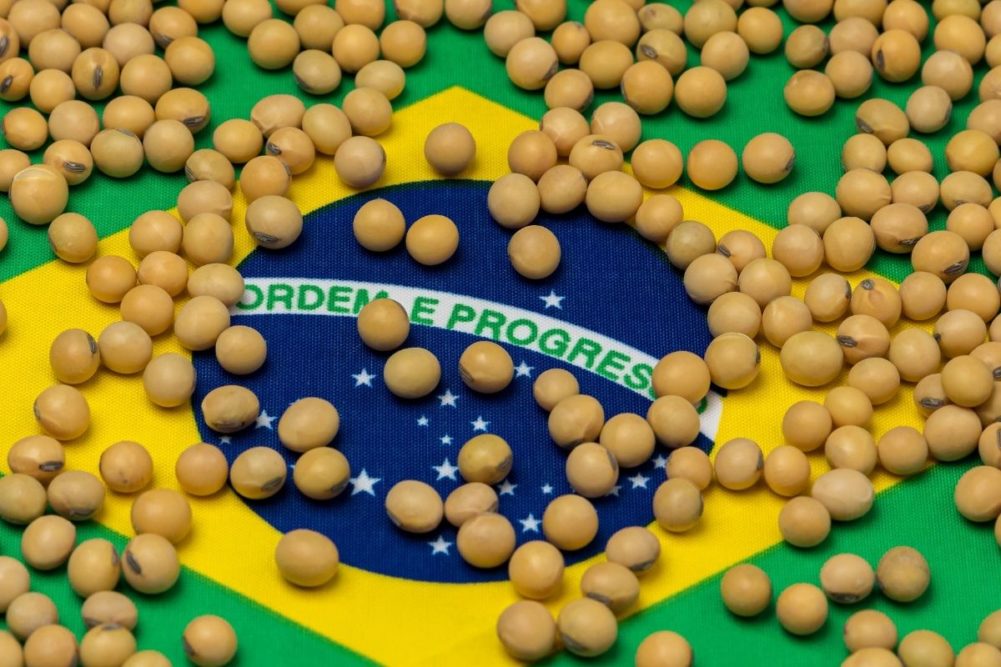BRASILIA, BRAZIL — Brazil’s 2021-22 grain harvest could reach 269.3 million tonnes, a 5.4% increase from 2020-21, according to new estimates from the National Supply Company (Conab).
However, the estimate, which is Conab’s seventh, is 6.7% lower than its first production estimate for the harvest. This is due to adverse weather conditions causing greater losses in soybeans and corn.
“Rainfall was more regular throughout the producing region including in the south of the country, which allowed for planting in good humidity conditions,” said Guilherme Ribeiro, president of Conab. “The producer did his part. Now let’s wait for the weather.”
Total planted area in the country is estimated at 72.9 million hectares, an increase of 4.4% compared with last harvest. The largest increases were seen in soybean area with a 4.1% increase and corn with a 6.5% increase.
Soybean production is forecast at 122.4 million tonnes, a drop of 11.4% compared with the previous crop. Good rainfall helped in the recovery of a small portion of crops sown late in the south region and Mato Grosso do Sul but did not reverse the decline in productivity, Conab said.
“Rio Grande do Sul remains the state most affected by the water deficit, followed by Paraná and Mato Grosso do Sul,” said Sergio De Zen, director of Agricultural Information and Agricultural Policies. “In the opposite scenario, most other states achieved higher yields than those obtained in the last harvest, especially Piauí, with a positive yield of 12.7%.”
Corn production is estimated at 115.6 million tonnes, a 33% increase from the previous cycle. Conab said despite the increase, the sharp 20% drop in productivity in the south region during the first harvest is important to note.
“This is explained by a severe water deficit caused by the lack of rain in the south of the country at the end of 2021 and beginning of 2022,” said Candice Santos, superintendent of Agricultural Information. “On the other hand, it is worth noting that Conab projects a 36.3% increase in corn productivity over the second harvest.”






